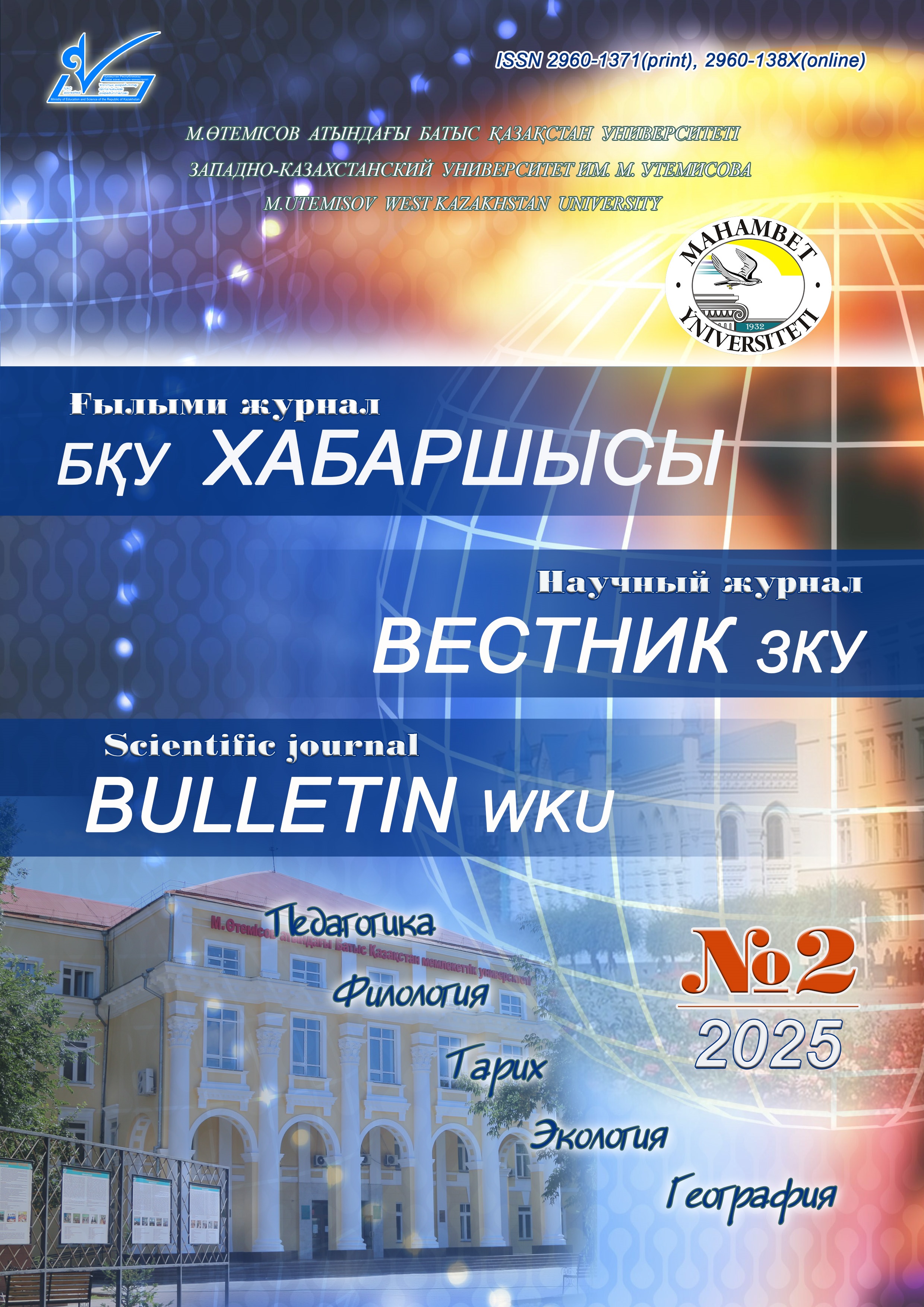INVESTIGATION OF THE EFFECTS OF POPULATION GROWTH AND URBANIZATION ON WATER CONSUMPTION IN KAZAKHSTAN USING MATHEMATICAL MODELING METHOD
Abstract
As is the case worldwide, population growth and urbanization are increasingly progressing processes in Kazakhstan. Therefore, it is anticipated that the increasing water demand driven by urbanization will exert pressure on water resources. Identifying this pressure and its potential effects systematically and taking necessary measures are of critical importance. In this context, this study examines the impact of population and urbanization growth on water consumption in Kazakhstan using data from the Kazakhstan National Statistics Bureau and mathematical modeling methods. The findings indicate that Kazakhstan's population, which stands at 20 million in 2024, is projected to reach 24 million by 2040 and 27 million by 2050. Furthermore, 70.7% of this population is expected to reside in urban areas, while the rural population is anticipated to decrease by 27.5%. In the study, population growth in large cities was analyzed. The urbanization rate between 2019 and 2024 stands out. In the future, it is possible that water resources will become insufficient and fail to meet the demand for water. With urbanization, the increasing demand for water brings to the fore the necessity of efficient use and protection of water resources. Within the scope of the study, the effects of the increasing urbanization rate on per capita daily water consumption have been projected, potential problems related to water resources have been identified. The per capita water demand has been rapidly increasing annually due to population growth. Future water demand forecasts have also been made to assess the impact of urban population growth on per capita daily water consumption. Therefore, this study emphasizes the importance of implementing critical measures to ensure the efficient management of water resources.



